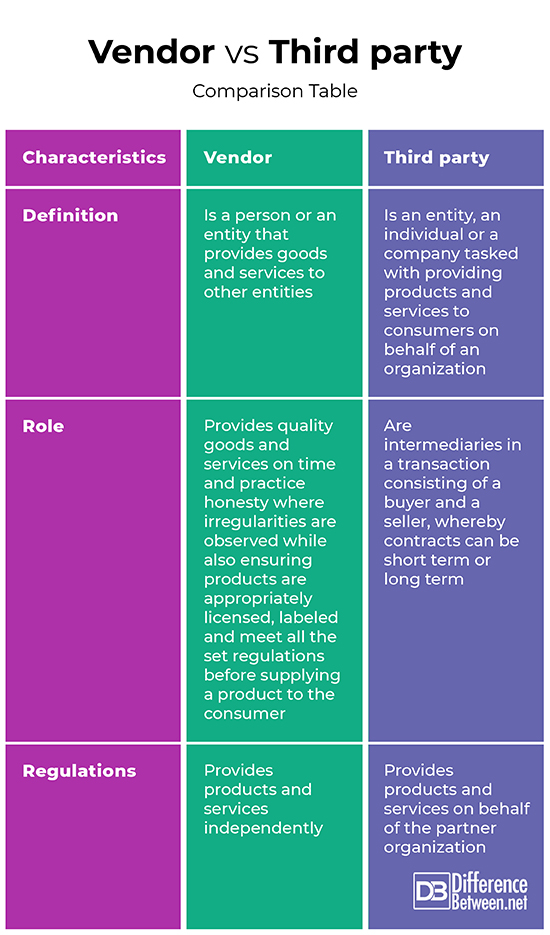For a business to operate smoothly, many parties and networks are involved including entities, people, resources, and information. This, however, depends on the business goals, and structure. Among the parties involved include manufacturers, suppliers, vendors, and retailers. While a business may choose to carry out its operations fully, others may opt to carry out various activities using a third party.

Who is the Vendor?
This is a person or an entity that provides goods and services to other entities. They can either carry out business to business (B2B), business to customers (B2C) and business to government (B2G) services. A vendor can either be an individual or an entity. Vendors are tasked with providing quality goods and services on time and practice honesty where irregularities are observed. This also involves ensuring products are appropriately licensed, labeled and meet all the set regulations before supplying a product to the consumer. Due to the large number of vendors that large businesses deal with warehouse management systems or finance systems are used to efficiently manage the vendors.

What is a Third-party?
This is an entity, an individual or a company tasked with providing products and services to consumers on behalf of an organization. A third-party is used as an intermediary in a transaction consisting of a buyer and a seller, whereby contracts can be short term or long term. The most common third parties include marketing agencies, insurance brokers, landscapers, telephone providers, law firms, consultants and debt collectors.
Similarities between Vendor and Third-party
- Both are used in business processes
- Both carry out short term and long term contracts
Differences between Vendor and Third-party
Definition
A vendor is a person or an entity that provides goods and services to other entities. On the other hand, a third-party is an entity, an individual or a company tasked with providing products and services to consumers on behalf of an organization.
Role
Vendors are tasked with providing quality goods and services on time and practice honesty where irregularities are observed while also ensuring products are appropriately licensed, labeled and meet all the set regulations before supplying a product to the consumer. On the other hand, third parties are intermediaries in a transaction consisting of a buyer and a seller, whereby contracts can be short term or long term.
Regulations
A vendor provides products and services independently. On the other hand, a third-party Provides products and services on behalf of the partner organization.
Vendor vs. Third-party: Comparison Table

Summary of Vendor vs. Third Party
A vendor is a person or an entity that provides goods and services to other entities while a third party is an entity, an individual or a company tasked with providing products and services to consumers on behalf of an organization. Businesses may opt to use vendors or third parties for the provision of products and services. This, however, depends on the company structure as well as the set regulations.
- Difference Between Profit Center and Investment Center - July 2, 2022
- Difference Between Anti-Trust and Anti-Competition - June 6, 2022
- Difference Between Stocktaking and Stock Control - June 6, 2022

